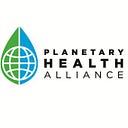Climate Change and Menstrual Health in Bangladesh
Dr. Munzur E-Murshid
Climate change is having a significant impact on the health and well-being of people in Bangladesh, and this includes the menstrual health of women and girls. The country is particularly vulnerable to the effects of climate change due to its low-lying geography, which puts it at risk of flooding and sea level rise (1). These environmental changes are having a direct impact on menstrual health, making it more difficult for women and girls to manage their periods safely and with dignity (2–4).
Increased flooding in Bangladesh negatively impacts overall menstrual health in the country (5–7). Progressively expanded areas are being flooded due to rise of the sea level, and as a result women and adolescents are facing difficulties in accessing safe water and sanitation facilities. It is not possible to ensure quality menstrual hygiene without clean water and appropriate sanitation facilities.
In Bangladesh, temperature and precipitation is increasing due to climate change effects. This is another element of climate change that is affecting overall menstrual health in Bangladesh. Women and adolescents face challenges during extreme weather events to manage their periods (8). For example, during heat-waves, women and girls may not have access to adequate ventilation or air conditioning, making it difficult to stay cool and comfortable during menstruation. Similarly, heavy rainfall can make it difficult for women and girls to access safe and private places to change their menstrual products, which can lead to increased risk of infection and other health problems.
In addition to these direct impacts, climate change is also having an indirect impact on menstrual health in Bangladesh by exacerbating poverty and food insecurity (9). As a result of climate change, more and more people in the country are experiencing food shortages and economic hardship, which can make it difficult for women and girls to afford menstrual products and other essential items.
Despite these challenges, there are steps that can be taken to mitigate the impact of climate change on menstrual health in Bangladesh. One important step is to increase awareness about the issue and to provide education and training on menstrual health and hygiene (10–12). By educating women and girls about the importance of good menstrual hygiene and providing them with the tools and resources they need to manage their periods safely, we can help to ensure that they are able to maintain their health and well-being despite the challenges of climate change.
In conclusion, climate change is having a significant impact on the menstrual health of women and girls in Bangladesh. The country’s low-lying geography, combined with increased flooding, changes in temperature and precipitation, and poverty and food insecurity, is making it increasingly difficult for women and girls to manage their periods safely and with dignity. However, by increasing awareness and providing education and resources, we can help to mitigate the impact of climate change on menstrual health in Bangladesh.
References:
1. Huq S, Ayers J. DG INTERNAL POLICIES OF THE UNION Policy Department Economic and Scientific Policy Climate Change Impacts and Responses in Bangladesh Note IP/A/CLIM/NT/2007–09 PE 400.990.
2. Moore E, Sommer M. The Effects of Climate Change on the Menstrual Health of Women and Girls in Rural Settings within Low-Income Countries. 2022 [cited 2023 Jan 30]; Available from: https://academiccommons.columbia.edu/doi/10.7916/bqyy-vh75
3. Bhattacharjee M. Menstrual Hygiene Management During Emergencies: A Study of Challenges Faced by Women and Adolescent Girls Living in Flood-prone Districts in Assam. https://doi.org/101177/0971521518811172 [Internet]. 2019 May 22 [cited 2023 Jan 30];26(1–2):96–107. Available from: https://journals.sagepub.com/doi/full/10.1177/0971521518811172
4. Climate emergency: Women and girls living in Pakistan flood zone suffering from urinary tract infections and reproductive complications in part due to lack of clean water, sanitation and hygiene — WaterAid — Pakistan | ReliefWeb [Internet]. [cited 2023 Jan 30]. Available from: https://reliefweb.int/report/pakistan/climate-emergency-women-and-girls-living-pakistan-flood-zone-suffering-urinary-tract-infections-and-reproductive-complications-part-due-lack-clean-water-sanitation-and-hygiene-wateraid
5. Rising Flood Risks in Bangladesh [Internet]. [cited 2023 Jan 30]. Available from: https://earthobservatory.nasa.gov/images/150274/rising-flood-risks-in-bangladesh
6. Tellman B, Sullivan JA, Kuhn C, Kettner AJ, Doyle CS, Brakenridge GR, et al. Satellite imaging reveals increased proportion of population exposed to floods. Nature. 2021 Aug 5;596(7870):80–6.
7. Climate change making Bangladesh’s floods worse — DW — 06/23/2022 [Internet]. [cited 2023 Jan 30]. Available from: https://www.dw.com/en/bangladesh-how-climate-change-is-making-floods-worse/a-62234503
8. The World Bank. Climate Change in Bangladesh: Impact on Infectious Diseases and Mental Health [Internet]. 2021 [cited 2023 Jan 30]. Available from: https://www.worldbank.org/en/news/feature/2021/10/07/climate-change-in-bangladesh-impact-on-infectious-diseases-and-mental-health
9. Bangladesh — Climate change risks and food security in Bangladesh [Internet]. [cited 2023 Jan 30]. Available from: https://documents.worldbank.org/en/publication/documents-reports/documentdetail/419531467998254867/bangladesh-climate-change-risks-and-food-security-in-bangladesh
10. World Bank. Menstrual health and hygiene empowers women and girls: How to ensure we get it right [Internet]. 2021 [cited 2022 Aug 15]. Available from: https://blogs.worldbank.org/water/menstrual-health-and-hygiene-empowers-women-and-girls-how-ensure-we-get-it-right
11. Menstrual hygiene management: education and empowerment for girls? on JSTOR [Internet]. [cited 2023 Jan 30]. Available from: https://www.jstor.org/stable/24688191
12. Afiaz A, Biswas RK. Awareness on menstrual hygiene management in Bangladesh and the possibilities of media interventions: Using a nationwide cross-sectional survey. BMJ Open [Internet]. 2021 [cited 2022 Aug 5];11(4):42134. Available from: http://bmjopen.bmj.com/
